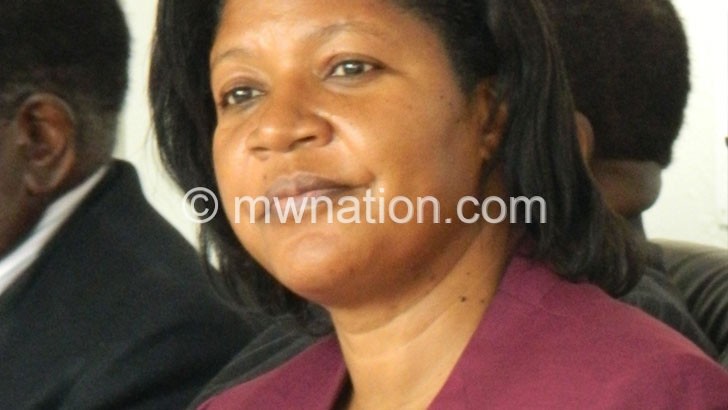Network hitch mars MEC test
Network glitches derailed Malawi Electoral Commission (MEC) testing of the elections results management process yesterday ahead of the May 21 Tripartite Elections.
The commission had scheduled for the dry run testing, at Comesa Hall in Blantyre, to start at 9am but ended up starting over one and a half hours later at 10.40am due to a network problem.
MEC has since assured that it will ensure the problem is resolved in time for the elections.

Speaking on the sidelines of the dry run test at Comesa Hall, where a main tally centre was set up, MEC commissioner Jean Mathanga said the test success proves the electoral body is on track with its preparations.
She said: “The commission has ample time to address the network issue.”
In a press statement last week, MEC chief elections officer Sam Alfandika said the commission envisaged some problems in some centres and would want the test to help them address the challenges before May 21.
“Issues to do with congestion over the network and possibility of unlawful access to the network will be critically assessed during this test,” he said.
During the transmission test, MEC placed staff and equipment in all constituency tally centres outside the main tally centre in Blantyre where stakeholders were present.
Present at Comesa Hall was MEC chairperson Justice Jane Ansah and commissioners Reverend Clifford Baloyi, Mathanga, Alfandika and other MEC officials, European Union (EU) election observers, United Nations Development Programme (UNDP) officials and information technology experts from political parties, among others.
The dry run tests involved staff stationed at constituency tally centres sending results electronically to the main tally centre in Blantyre within minutes.
However, the process delayed due to network challenges, particularly in the setting up and connectivity to the tally centres.
But once the process started, there was a smooth transmission of the test results, much to the satisfaction and delight of both MEC and the other stakeholders present.
The dry run test comes amid claims that some political parties plan to rig the May 21 elections, with accusation and counter accusations mainly between the governing Democratic Progressive Party (DPP) and one of its main contenders, UTM Party.
Mathanga said MEC is working to enhance security of the transmission process in light of the rigging claims.
She said: “We have been hearing those rumours and there are myths all over. We look at that as a risk and we are managing it. We are making sure our system is robust and that no one can tamper with it.”
UNDP chief technical advisor on elections Richard Cox, in a separate interview, also expressed delight in the dry run test success, saying it clears doubts of the transmission integrity of the results management.
He said UNDP continues to support the electoral body to ensure that the transmission system goes smoothly on polling day.
Said Cox: “It is very difficult to come up with an absolute watertight system that cannot be hacked from anywhere, but we are supporting MEC with high niche expertise in such areas as hacking and so we are confident that measures are being put in place to make hacking into the system very difficult.”
On his part, Centre for Multiparty Democracy (CMD) executive director Kizito Tenthani hailed MEC for holding a successful dry run test, saying it was a bold move in awareness of the transmission process to electoral stakeholders.
“It is good that MEC invited stakeholders to understand the results transmission process so that concerns raised should be addressed.
“What is important is their understanding of the process because in my view, that would enhance the trust that people have in the commission and in the transmission process,” he said.
Earlier, United Kingdom’s (UK) Department for International Development (DfID) head Dave Beer also tweeted on the success of the dry run tests, saying: “Preparations going strong! MEC testing the transmission of electoral results to ensure everything goes smoothly on 21 May.”
The elections are being funded by the UNDP electoral support basket fund which comprises the EU, DfID, Norwegian Embassy, United States International Development (USAid), Irish Aid and UNDP.
During the campaign period, which MEC officially launched on March 19, two presidential candidates, UTM Party torchbearer and Vice-President Saulos Chilima and President Peter Mutharika of DPP have on separate occasions accused each other of planning to rig the elections.
Mutharika also accused telecommunications companies TNM plc and Airtel Malawi of being complicit in the rigging, a claim both companies have dismissed.
Last week, the Immigration Department issued a memo addressed to all heads of sections in the country’s border posts to exercise caution in processing visa applications from risky countries of Nigeria, India and Russia.
Ironically, the memo followed Mutharika’s allegations at a campaign rally in Ntchisi that some of his challengers had engaged nationals of Nigeria, Greece and Russia in a purported scheme to rig the May 21 Tripartite Elections results using ICT.





